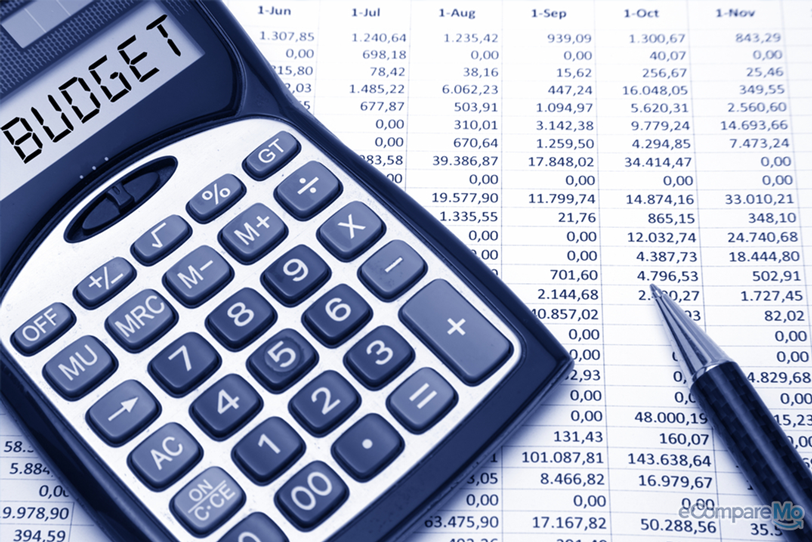Give Your Finances A Facelift With This 15-Day Program
6 min readThey say it takes 21 days to make or break a habit; do something long enough with consistency and it will be either integrated or disintegrated from your system. However, 21 days may be too long for some people, especially those who want quick but effective changes in their lives. If you want to get started with your financial makeover, why not try this 15-day challenge? Jump-start your financial savviness and make yourself more efficient when it comes to allocating, budgeting, and saving–starting today.
-
Day 1
Figure out your current financial state.Before you can start changing your financial game, you need to understand first where you’re standing. To start gauging your financial state, review the flow of your finances for up to the last three months. If you’ve been living on a credit card debt or any type of debt for quite some time and having troubles allocating money to where they’re needed, it’s time to start the program.
(Check out: Five Signs That You Are On Your Way To Financial Suicide)
-
Day 2
Find the best way to track your finances.If you want to be in total control of your money, you need to oversee where your money comes from and where does it go. By having a detailed overview of your money flow, you can track your spending habits and allow you to make adjustments to make your money handling more efficient. Whether you’re using a smartphone app or making an old-fashioned list of your expenses, you need a way to watch over your money flow.
-
Day 3
List down all your debt.Debt is one of the many reasons why you are continuously shackled financially, although they are all connected with each other. Unfortunately, debt is something that can negatively pull down your finances, and you need to deal with it as soon as possible. If you want to turn your whole financial life around, you need to be aware of your all your debts—whether they are interest-bearing or not.
-
Day 4
Set a working budget.Overspending is one of the main reasons why a lot of people crash and burn their budget, with a lot of them spending more than they should be. If you really want to become effective when it comes to handling money, you need to have a working budget so you will never stray far from your money. By setting a budget, you can avoid things from getting out of hand.
-
Day 5
Think of something to save for.Saving per se is good, but if you really want to become dead serious when it comes to putting off a portion of your money for future use, you need to have a certain vision on how you will use this money. By having a sense of purpose for your savings, you can easily get motivated without even trying hard. Think of something material; it can go from something as mundane as a new phone or something as ambitious as a new home.
-
Day 6
Declutter your budget.You already have your budget, which is good when you usually don’t have a direction when it comes to budgeting. When you already have a budget, the next best thing you can do to following it religiously is by trying to eliminate some unnecessary expenses from your budget. Whether it’s cutting the cord or trying to get rid of the junk food, try to make your budget leaner and meaner.
(Check out: Which Budgeting Style Suits You Best?)
-
Day 7
Power up your savings.Before things became heavily automated, saving money was definitely a tedious chore people have to endure if they want something. Nowadays, it is much easier to make savings automatic when you have an online account, giving you the power to transfer your money to a purely savings account. When you make savings automatic, you can stop worrying about it and focus more on other things.
-
Day 8
Look for ways to earn more.If you think that one revenue stream is enough to make your financial life become better, then you are still a slacker when it comes to money. Fortunately, there are many ways you can start earning money without leaving your full-time job. Be creative: whether these are online jobs or some small-time gig like selling snacks, what’s important is that you have another source of income.
-
Day 9
Get into investing.Putting your money on a savings account can be good for your financial health, but investing your money somewhere else can give you greater yields. If you still are clueless when it comes to investments, now is the time to start learning about it. There are tons of resources online to help you become savvy with different types of investment.
-
Day 10
Boost your credit score.Your credit score can make or break your application for credit cards and other banking products. When you have a low credit score, it can hurt your chances to get approved. While Filipinos may not have the privilege to see their credit scores, you can still boost your rating and become eligible. In a nutshell, boost your credit score by paying your bills, including existing loans, before their due date.
-
Day 11
Review your banking partner.Do you have a savings account and you feel like you’re not getting enough? Or do you feel like your credit card provider is ripping you off with monumental fees and other charges? If this is the case, then you might want to make the switch. Review your banking terms and see if you’re at a disadvantage—then change your banking provider if you have to.
-
Day 12
Compile your documents in one place.Organization is key in making your financial life more streamlined, and what better way to do it than to put everything in a single place? For your documents such as bank statements, passbook, ATM cards, receipts, and other financial documents to help you have a better overview of your money flow. Put them in one place, and make sure it’s accessible enough so you can go over them whenever you have to.
-
Day 13
Review to your insurance policy.Insurance exists to protect you from the financial fallout of different unfortunate events. Whether you’re looking at car insurance or travel insurance, you have to go over your policies again and see if you are getting more bang for your buck. If you feel like you’re being ripped off by your current insurer, find a new partner that will give you maximum coverage for less.
-
Day 14
Create a three-month financial plan.While you’re almost at the end of your financial overhaul, you shouldn’t waste the momentum and follow up on your whole two week activity. To make sure this change goes on for a considerable amount of time, create a three-month plan for your money. While you may think it’s difficult, remember that most of your expenses recur. Just have a clear overview of what’s going to happen with your money and you’ll be fine for a very long time.
-
Day 15
Resist the urge of splurging on payday.After 14 days of trying to turn your financial life upside down, it’s time to put everything you’ve learned to practice. This time, you need to find a way to stop yourself from splurging on payday. While this may be hard, doing it will make everything you’ve done for the past 14 days’ worth it, especially that you are giving your money the right head start. Remember, everything you planned days before starts when you get your paycheck and put things in motion.
While it may not take fifteen days to make a habit, two weeks’ worth of time is enough to help you assimilate the right mindset when it comes to handling your money. If you follow this procedure religiously, you may be able to turn your whole life around.















